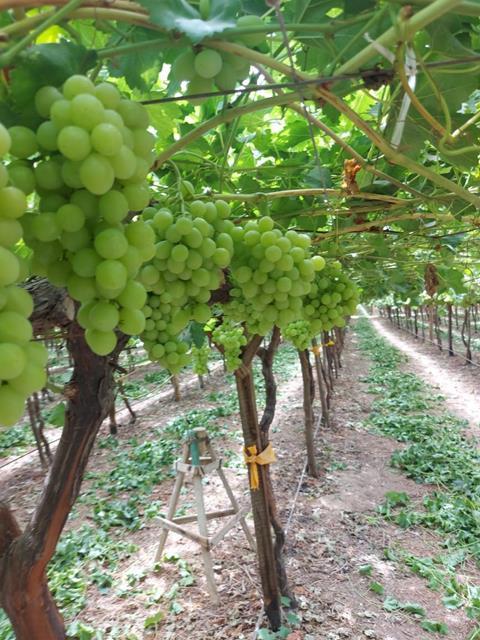The Egyptian authorities believe the issue of illegally grown grape varieties is best solved at source, investing in the latest DNA machines to take random samples
Authorities in Egypt have announced the use of DNA to prevent illegal shipments of protected grape varieties at source in response to “repeated breaches”.
Last month, according to the GM at the Central Administration of Plant Quarantine, Elsayed Abbas, customs authorities in Italy stopped two containers of illegally grown grapes of the Early Sweet variety belonging to Grapa.

This was apparently the fourth time that shipments from Egypt containing intellectually protected varieties were caught by the authorities.
In cases where the variety owner suspects infringement, a DNA sample is sent for testing at an official laboratory in Europe.
“In case of infringement the shipment gets destroyed,” Abbas said in a statement. “This means a huge loss for the exporters, packers as well as a problem between them and the farmers who illegally grow patented varieties.”
Egypt has reportedly taken drastic steps to stop such activities at source, especially since the country joined the International Union for the Protection of New Varieties of Plants (UPOV).
Egypt’s Minister of Agriculture issued a decree, Ministerial Decree No. 387 of 2021, which obliged farms and packhouses to be approved by authorities and obtain a code to export.
Egypt’s Central Administration for Plant Quarantine has also issued a decree regulating the export process for table grapes.
“Farmers or packhouses that deal with protected varieties without a license,” the statement read, “would risk losing the validity of their code, and hence get banned from exporting. Last year, an Egyptian court ordered the destruction of 9,000 vines of grapes, which were uprooted by the local authorities in a farm in upper Egypt.”
Dr Ahmed EL Attar, head of the Egyptian Phytosanitary Authorities, said that “Egypt has been taking very serious steps to fight infringement”.
In addition to building a laboratory, authorities have installed the most up-to-date DNA machines in order to make random checks on farms and packhouses suspected to have illegal grape varieties.
“Just like we check for pesticide residues as a preemptive step we will also check for DNA infringement,” Abbas stated. “It is better to stop them in Egypt than be stopped abroad, losing money and ruining the reputation of the whole industry. This would also stop some small nurseries from illegally obtaining plant material and selling it to farmers, who later on risk being sued by breeders, or risk commercial problems marketing illegal fruit.
“The Egyptian Law encourages innovation, and attracts foreign investments in research, and gives protection to breeders. These steps have encouraged a lot of breeders to increase their investments in Egypt and bring in new varieties which will increase quality and productivity, and ultimately help the country’s export sector as well as the small grower. Licensed growers have welcomed these steps, as they protect them from illegal cheap fruit which ruins the market.



